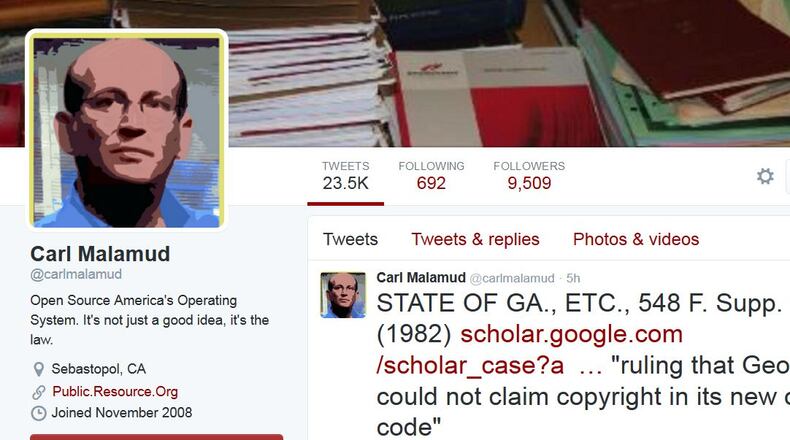A federal judge could soon decide whether a version of Georgia's law can be published for free amid an intensifying legal battle between the state and a public records advocate.
Internet pioneer Carl Malamud and his nonprofit PublicResource.org filed a motion late Tuesday urging a judge to allow it to publish an annotated version of Georgia code after state officials accused him of violating copyright rules.
"The law belongs to the people," the motion said, adding that making it available "allows everyone, whether he or she is a lawyer or layperson, journalist, teacher or student, part of a nonprofit charitable entity or a multinational corporation, or merely a concerned citizen—everyone—to better understand, use, and comply with the law."
It was Malamud's most recent counterstrike from a July lawsuit by state legislative officials claiming that Malamud is engaged in a "strategy of terrorism" to force the government to spend taxpayer dollars to "force government entities to publish documents on Malamud's terms."
The document at the center of the debate isn't Georgia's legal code, which is already available freely online. It's an annotated version of state law chock full of summaries of legal decisions and findings by the state Attorney General that's available in print from LexisNexis for $378.
The state contends that the annotated version is an "original and creative work of authorship" that is protected by copyrights and owned by the state of Georgia. Malamud said in his response Tuesday that the annotated version should be free of charge because it would "ensure the citizens of this state, and others, fair and equal access to the laws of the State of Georgia."
It's the latest in a lengthy battle between Georgia legislative leaders and Malamud over copyright issues that began in May 2013 when Malamud sent a letter to House Speaker David Ralston enclosed with a thumb drive of the document, declaring his purpose "is to promote access to the law by citizens" of the laws that govern them.
About the Author
The Latest
Featured




